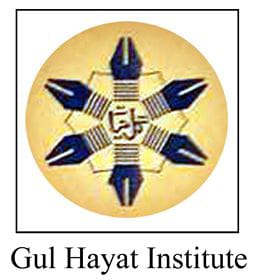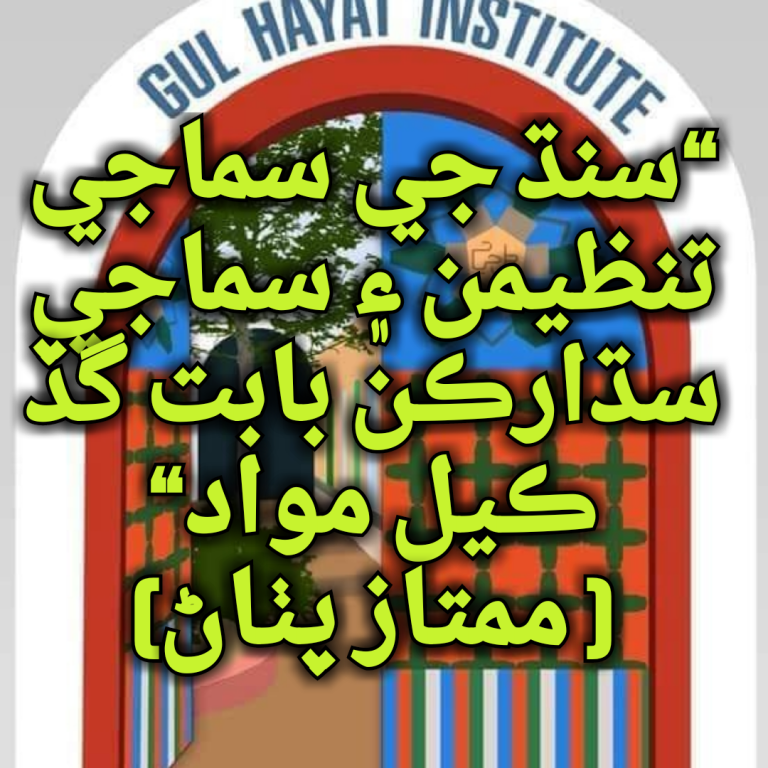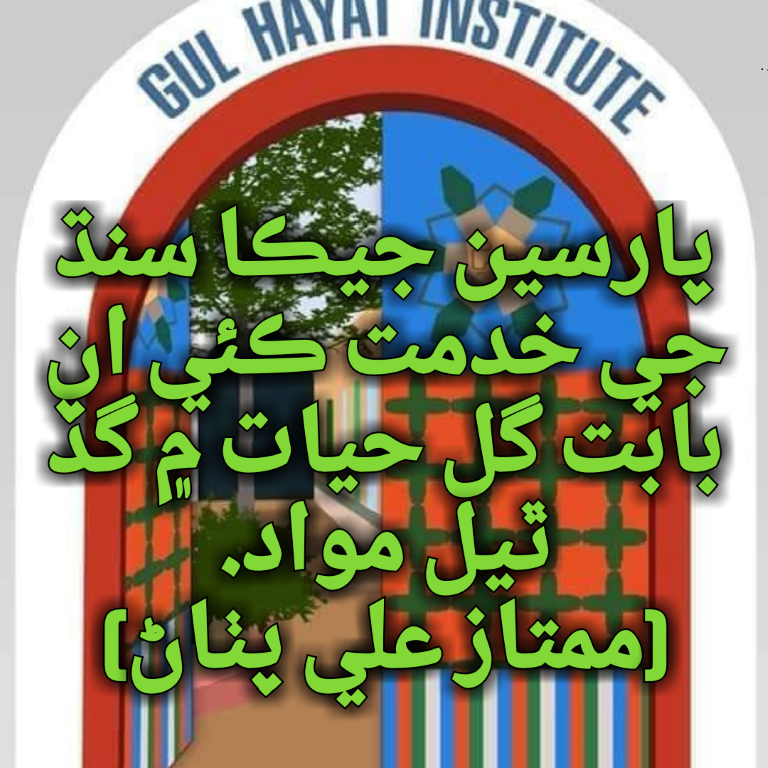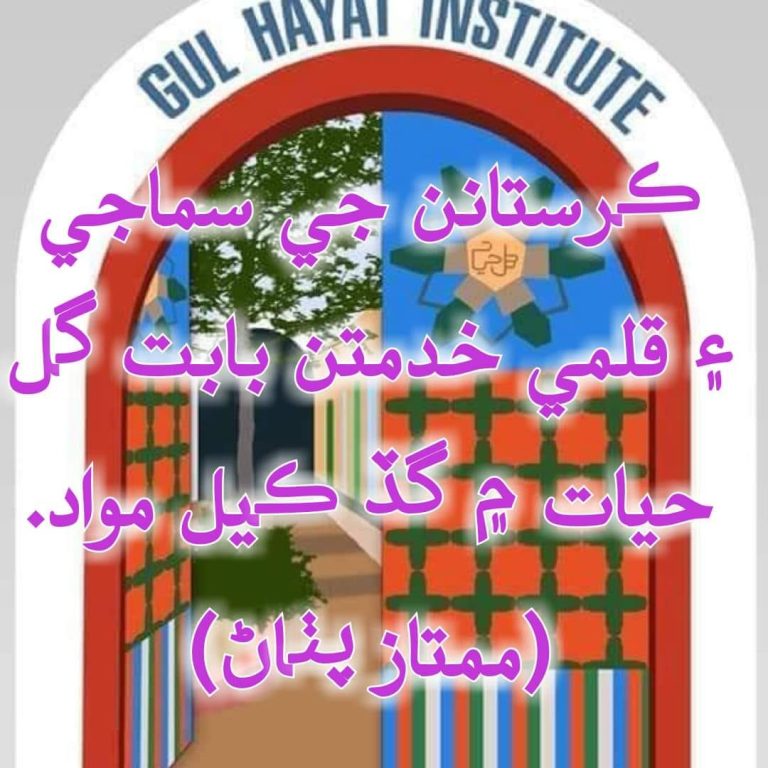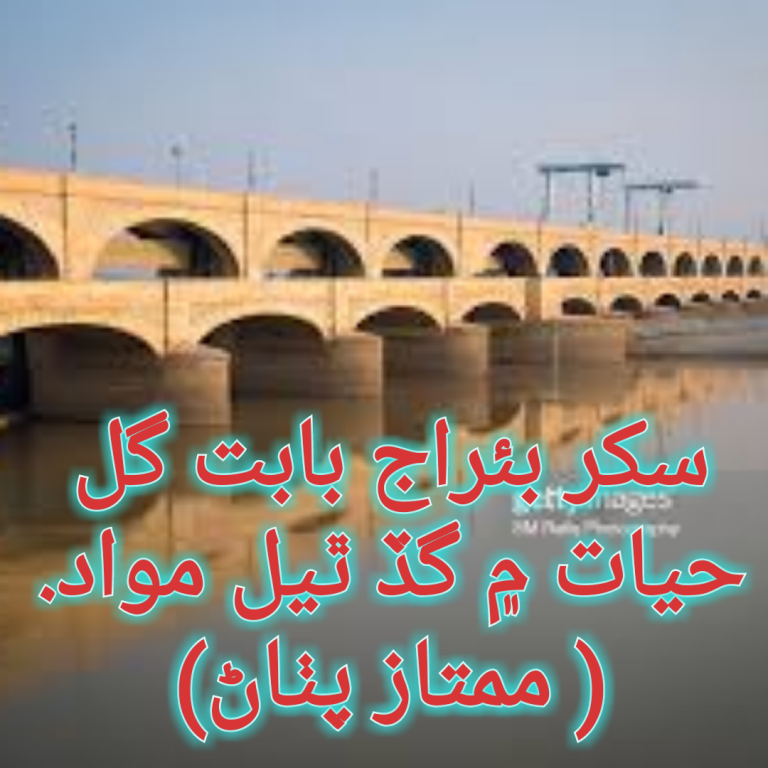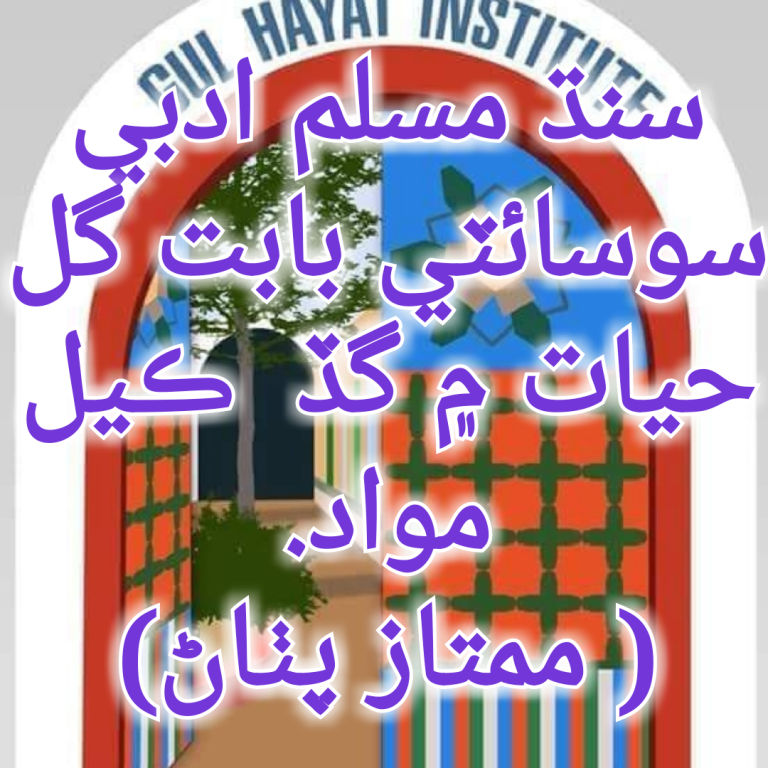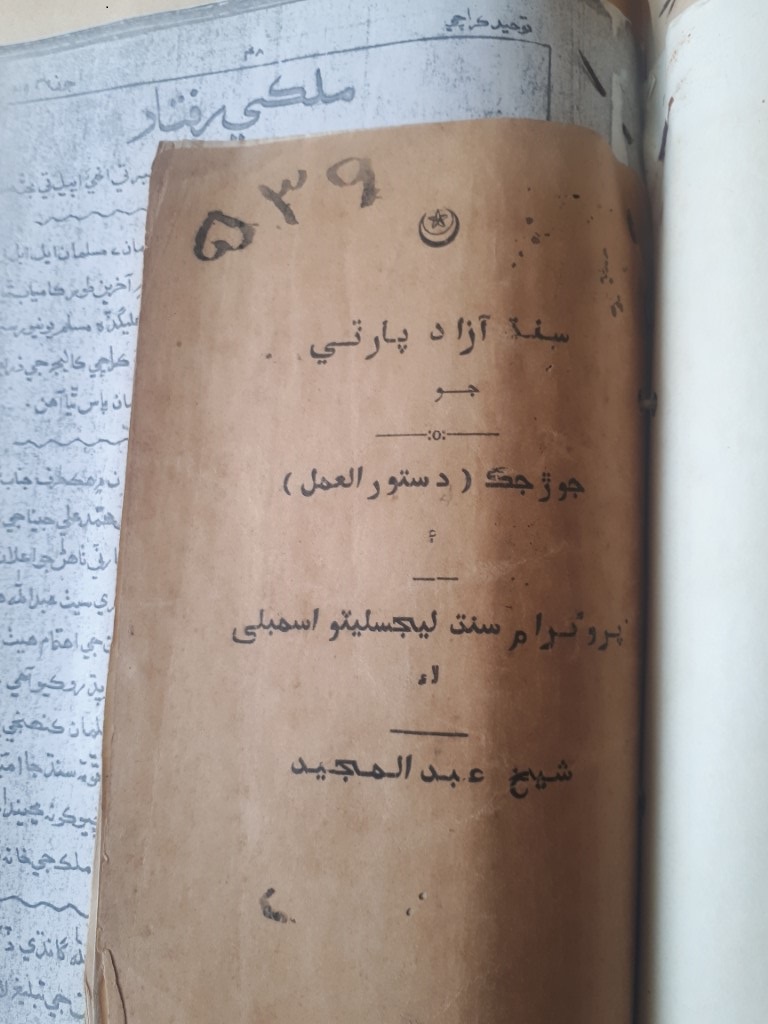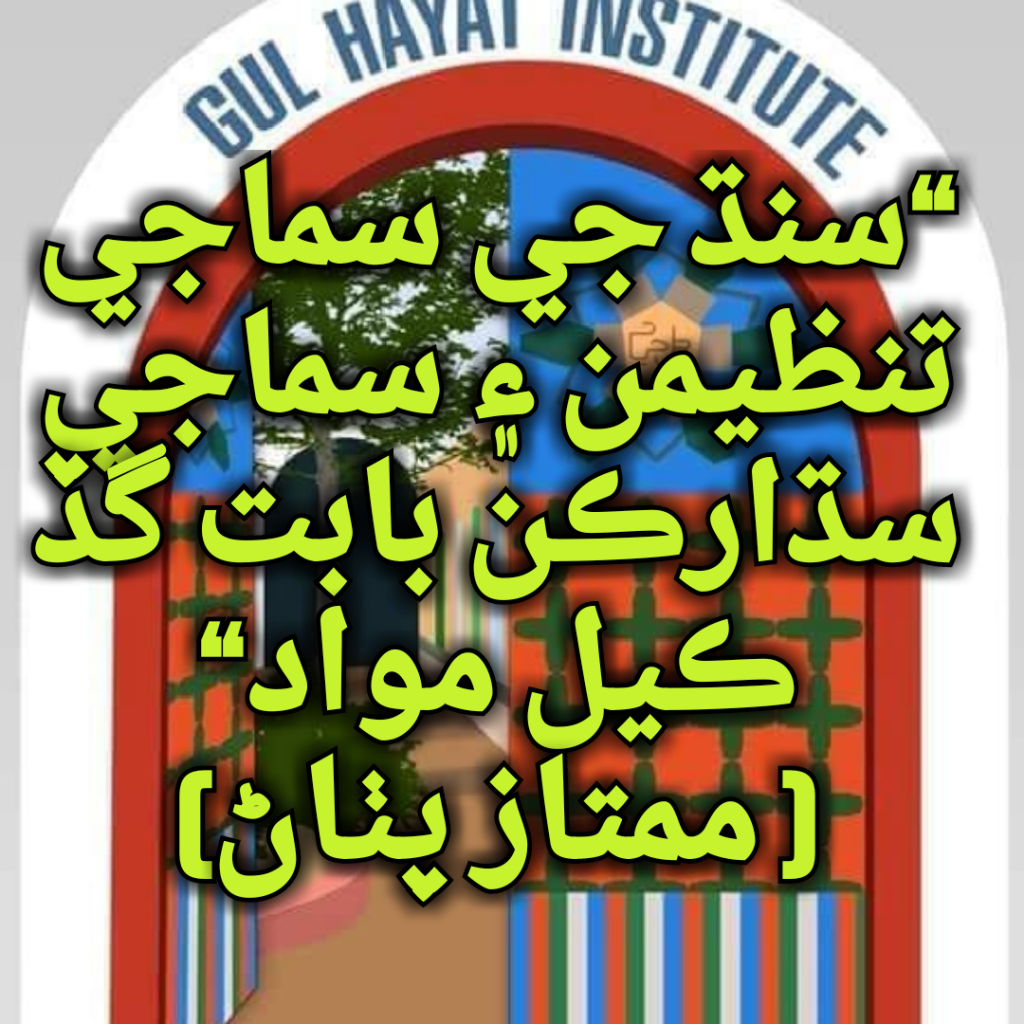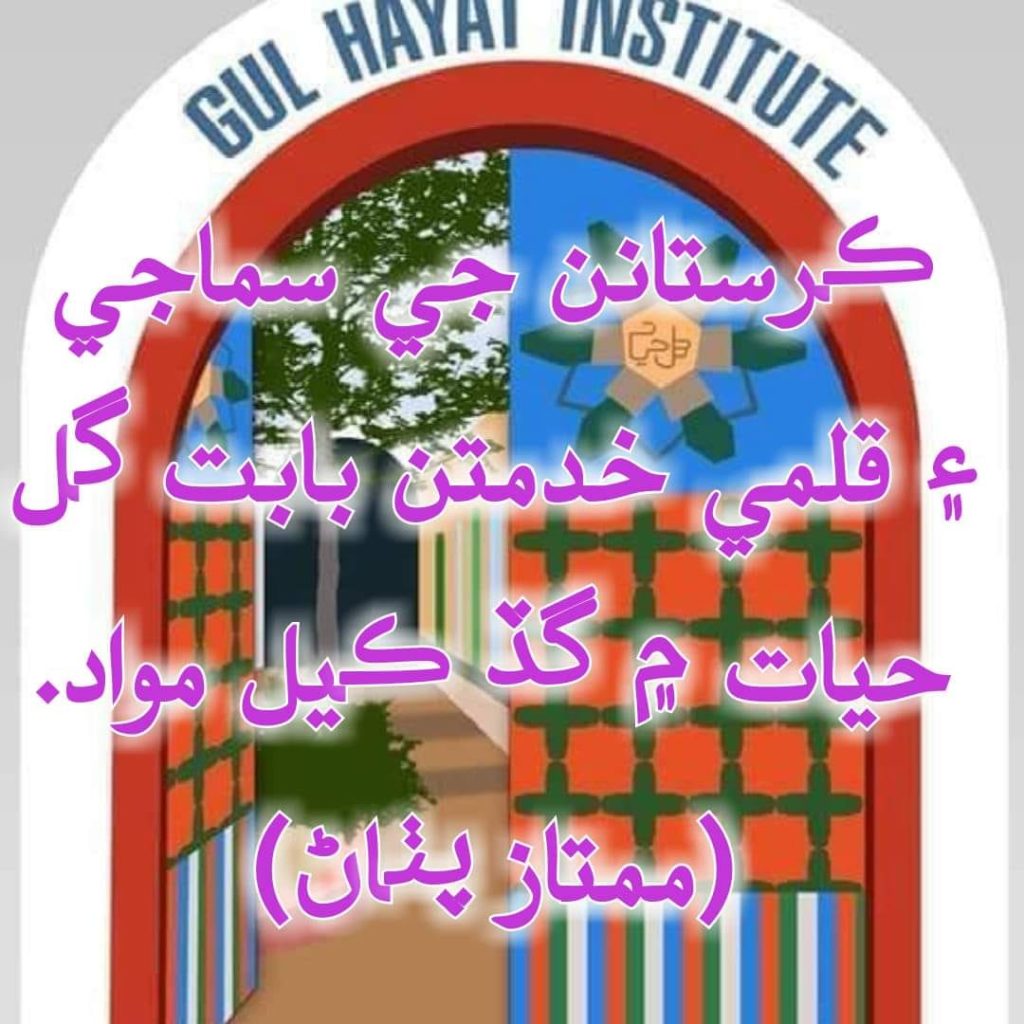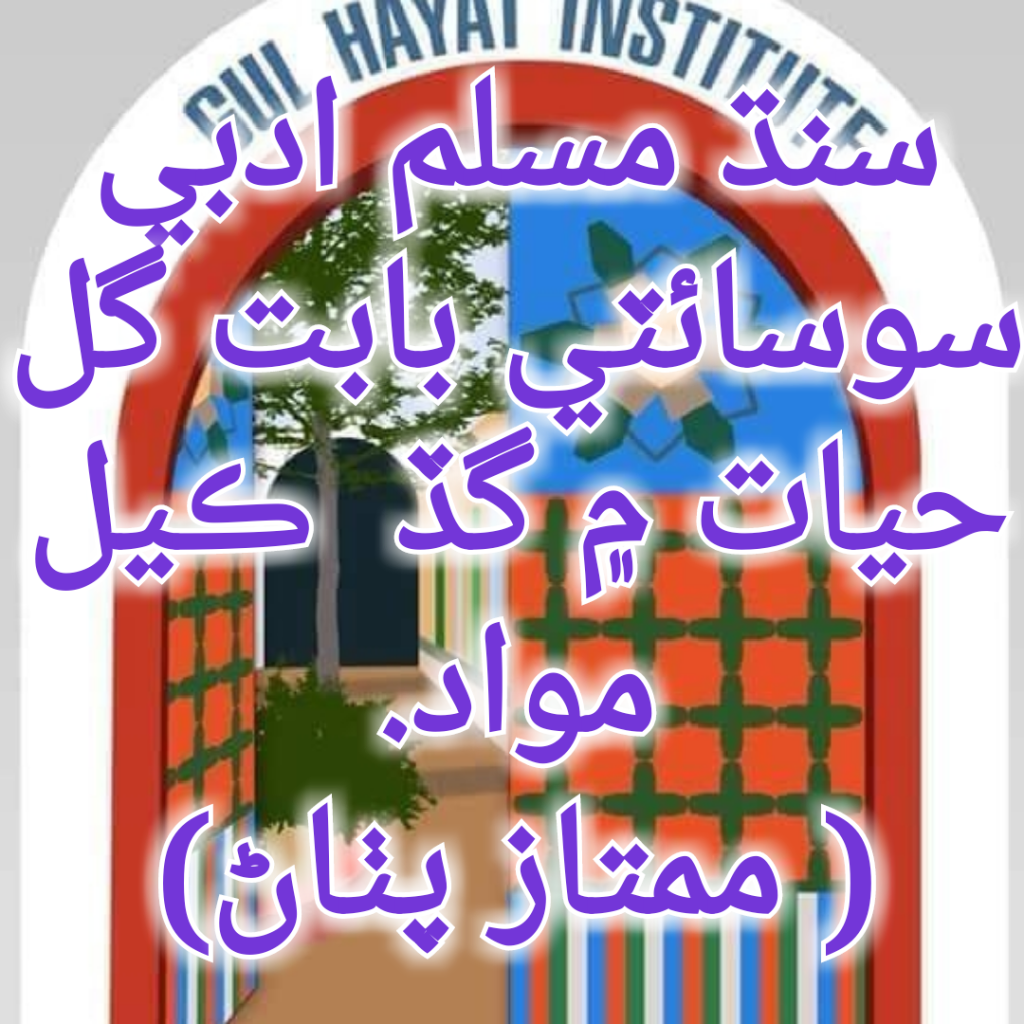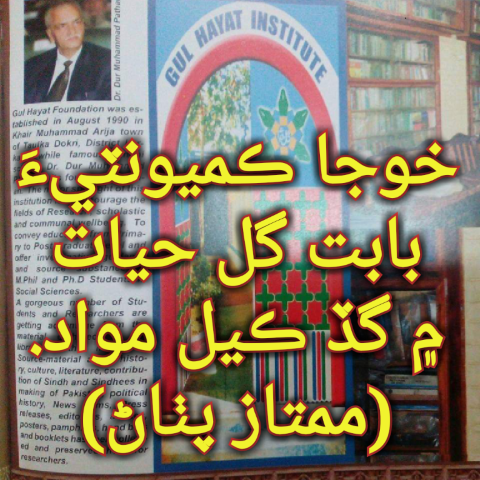SINDH PROVINCIAL CONFERENCE
Held In March / April 1918
At Karachi – Proceedings
And Resolutions
The Sind Provincial Conference opened in Karachi on 30.03.1918 afternoon under the presidentship of Mr. Murlidhar Jeramdas, a pleader of Shikarpur and was attended by nearly 500 hundred delegates from all parts of Sind. After an address by the Hon. Mr. Harchandrai Vishindas, C.I.E., Chairman of the reception committee, and speeches by Mr. Ghulam Ali G. Chagla, R.B. Hiranand and Mr. Lokamal Chellaram enlogising the president and moving him into chair Mr. Murlidhar read, his presidential address which embraced almost every topic of importance and unimportance to Sind, except the war.
The proceedings on 30.03.1918 meeting opened with a resolution expressing sorrow, at the death of Sir William wedderburn, which was passed in silence. The president then moved a brief resolution declaring loyalty to the British Crown and praying for the success of the British arms.
The following resolutions were passed:-
(1) “This conference is emphatically of opinion that the reforms outlined in Curti’s scheme are mischievous, illusory and unacceptable to the people of India and therefore strongly condemns the suggestion that the scheme should be applied to Sind or in any other part of India”.
(2) “This conference places on record its grateful thanks to the Labor party of England for its whole-hearted support to the cause of Home Rule for India and for its pledge to render all assistance inside and outside parliament towards the attainment of this object”.
The Principal resolution of the Conference led to an avalanche of speeches from the Hon. Mr. Harchandrai Vishindas, R.B. Hiranand Khemsing, Mr. Ghulam Ali G. Chagla, Mukhi Jethnand Pritmadas, Mr. Santdas Magharam, Mr. Naraindas Motoram, Mr. R.K. Sidhwa, and Dr. Choithram.
It read:-
(3) This Conference while appreciating the pronouncement made by His Majesty’s Secretary of State for India on behalf of the Imperial Government that its object is the establishment of responsible Government of India, urges, the Imperial Government to give the people of India an effective voice, with His Majesty’s Government and the Government of India, in determining the measure and time of each advance towards responsible Government.
“This Conference strongly urges the necessity for the immediate enactment of a parliamentary statute providing for the establishment of responsible Government in India, the full measure to be attained at an early date within a time to be fixed in the statute itself.
“This conference is emphatically of opinion that the Congress League Scheme of reforms which is the irreducible minimum that the people of India can accept be immediately introduced by statute as the first step in the process:.
“The final resolution was:-
(4) “This conference strongly condemns the action of officials in bringing undue pressure on various municipalities in Sind to introduce the house tax in the teeth of strong opposition of the people and in emphatically disapproves of their high handed action in the case of Larkana, and Manjhand Municipalities. This conference desires to bring to the notice of Government this high-handed policy and violation of the principle of local self-Government and urges the immediate reversal of the same”.
The conference again assembled on 1.04.1918 and passed further resolutions including one on the separation of Sind from the Presidency. (D.G. 1 April, 1918, P.4)
CONCLUDING DAY
On resumption yesterday (1st April, 1918) afternoon the Sind Provincial Conference passed four resolutions, the principal being on the position of Sind in the coming reforms, which led to a long discussion before it was carried. It reads:-
“This Conference is emphatically of opinion that the present system of Government in Sind under which the Commissioner in Sind exercises almost all the powers of the Governor in Council, without the safeguards afforded by an Executive Council, constituting thus a system of decentralization of powers without popular control, is most detrimental to the best interests of the Province and has retarded its progress in many direction.
“This Conference therefore strongly urges the imperative necessity of repealing Act V of 1868 and all over measures authorizing delegation of powers to the Commissioner in Sind and of placing Sind under the direct control of the Government of Bombay.
“That in view of the announcement of reforms expected to be made by the Secretary of State as the result of his mission to this country, a committee (consisting of twenty gentlemen) be appointed to consider the said announcement, more specially with reference to Sind and submit its report to the Sind Provincial Congress Committee, who should convene a special session of the Sind Provincial Conference to deliberate on the same”.
The other resolution covered a diversity of subjects, ranging from education to resolutions on individuals and the Press and including several matters of interests to Sind. .
PRESIDENT’S ADDRESS
The presidential address, which was delivered on Saturday occupied forty five pages of printed foolscap, five sixth of which were devoted to what may be described as imperial topics the Defence of India Act, the Arms Act, The Press Act, the Income Tax Act, Education, “Home Rule”, Local “Home Rule”, the Swadeshi Movement, etc. whilst one sixth referred to Sind matters the form of the Sind Government, Fallow Rules, Fuel and Salt, Bank side trees, Rasai, Lapo and Cher. On the subject of the Government of Sind “as it is and as it ought to be”, Mr. Murlidhar Jeramdass delivered himself as follows:
SIND AS IT OUGHT TO BE
Sind in comparison to her sister provinces stands on a lower rung of the ladder leading to the destined goal of Swaraj. Her position in the presidency is peculiar; she has therefore to work harder and more strenuously than other provinces for the purpose of reaching the desired goal.
Even Indian’s political Rishi late Mr. Gokhale in his political testament treated Sind with scant attention and the inactivity and inertia displayed by her. But now the same state of things can not be permitted to continue and Sind refused to be called a “Benighted province” or a “Sleepy hollow”. She is an integral and non-negligible part of India and is prepared to contribute ratably to the Indian culture.
This subject had very recently been a matter for discussion at the last Special Sind Conference held at Hyderabad a few months ago. As it was the legitimate and special province of that Conference to deal with it, my task is considerably simplified so far as this subject is concerned and I have thus to make a very few observations only.
It is an anomaly that Sind is still on the list of “Scheduled Districts” although with Karachi rivaling Bombay, it has been advancing commercially and though in consequence of Mesopotamian conquest, its geographical importance is an assured and unprecedented one.
Whatever be the view adopted with respect to the political status that Sind may occupy in the proposed reforms, we all are unanimously agreed that Sind Commissioner’s Act of 1868, that has remained with us for a half century, ought to be abolished and one man’s rule ought to end. This Act confers powers of the Governor in Council on the Commissioner usually of the Indian Civil Service and trained to be an autocrat, and his acts remain uncontrolled and unquestioned by the Bombay Government. The Government has voluntarily parted with its power to check the actions of each with its power to check the each occupant that comes and goes. His will is supreme for good or for evil and absolute. Sind feels sequestered. It has a poor representation on the University, her educational advancement is slow her development of Local Self Government stunted and her agricultural, irrigational and industrial condition unsatisfactory. I can not refrain myself from observing that this system is repugnant to the democratic principles that have now surcharged the political atmosphere all over the world and that at present the autocratic system can not inspire that confidence in the minds of the governed that would otherwise be done in the case of a representatives Government wherein “Self determination” has a part. What is done in the province, be it in the dispensation of state service, be it in the nomination of municipalities and local boards, be it in the forests or in the judiciary, never reaches the ears of the Bombay Government.
With the repeal of this Act where with a pre anti dilluvian form of Government is carried on, arises the question of demand for a suitable and satisfactory form of Government.
The only possible suggestions for consideration are:-
(1) Should Sind be autonomous with a Governor and Councils?
(2) Should Sind be linked to the Punjab?
(3) Should Sind be made a part of Baluchistan?
(4) Should Sind remain annexed to Bombay with a promise that Sind Commissioner’s Act be repealed and Sind be given a Commissioner with the same powers that other Commissioners in the Presidency have.
Brother delegates, these are all mementoes questions on the right determination of which the future of Sind depends. All the above suggestions have been fully considered at the last Sind Special Provincial Conference. Mine will be but a feeble voice in endorsement of those views. But the importance of the questions is such that the ablest and the most thoughtful men of Sind should meet in committee to consider the various aspects of the questions. Difficulties there are in every course but they have to be met. Under the present system Sind has not gained any thing from the introduction of Morley Minto reforms. Sind unless it rises to suggest its fate will, I am sure remain untouched by any changes that Parliament may introduce at the instance of Mr. Montagu, Sind must make its voice felt that the present system of bureaucratic rule with “wooden, in elastic and iron” machinery can not go on any longer. Before these changes are introduced let this Conference or its specially authorized committee prepare a scheme of reforms for the administration of Sind Government.
FUEL AND SALT
On the subject of Fuel and Salt Mr. Murlidhar said:
The prices of fuel and salt had gone very high and continued complaints were heard from all parts of the Province. But I am glad the Commissioner in Sind has kindly interested himself in the matter and arrangements are made through municipalities to sell salt at the rate of one anna per seer and fuel kandi at a little over 8 annas a maund and lai a little over 6 annas a maund throughout the year. If the municipalities can take up coupes according to their requirements direct from the Forest Department they will be able to sell fuel still cheaper to the people. I am sure Government will make reasonable concession in royalty charges in such a case.
BANK SIDE TREES
On the subject of Bank side trees Mr. Murlidhar said:
Among the chief grievances of the Sind Zamindars, the order of the Commissioner in Sind about the bank side trees on private water courses is one. The karias are excavated and cleared by the Zamindars themselves at their own cost and the tress are planted, nurtured, and maintained by the Zamindars, similarly. The produce of these trees is also enjoyed by the Zamindars. The incidents of ownership lie with the Zamindars. There is thus no justification why the Government should lay claim such trees. They have no hand in their creation or growth. I am aware that the proportion of the land covered by the karia is deducted from the area of the land for the purpose of assessment but the land revenue charged includes the water rate and karia assessment as disclosed by the report of Commission appointed to report on settlements.
Therefore this fact should not affect the right of the Zamindars to the trees grown and maintained by him and not by Government though the usufruct is admittedly the Zamindars. Government claims ownership of the land under the water courses but Government similarly claims to be the power paramount of all the survey numbers are recognized to be the legitimate property of the Zamindars. For many years there was no interference by Government with the rights of Zamindars over these trees and no permission was required for cutting them. Latterly however a circular ( No.29 ) went forth and warned the rayat that such trees no longer were their property . This circular seems presumably to be based on the view that the land Revenue Code had vested the proprietorship of all the soil in the power paramount. But this inspite of Sind Sadar Court deciding in 1883 as against Government assertion of such a claim “That though there may have been originally nothing proprietary in the character of some Zamindars the position was one which readily developed in a proprietary form” I think in fairness to the Zamindars, Government should now uphold their rights to these trees and issue clear orders to that effect so as to save the Zamindars from unnecessary prosecutions in criminal courts and harassment at the hands of revenue officials.
Mr. Murlidhar’s remarks on the subjects of the Fallow Rules, Rasai, Lapo and cher were repetition of what has been said at previous local meeting. (DAILY GAZETTE, DATED APRIL2, 1918 PAGE NO.10)
TEXT OF RESOLUTIONS
The following resolutions were passed at Monday’s sitting of this Sind Provincial Conference in Karachi:
1.- (a) “That this conference is of opinion that the existing system of education under Government control does not satisfy necessary requirements and therefore until national control is effectively secured over the educational system, voluntary organizations, independent of Government control, should be started and developed for the purpose of founding and expanding schools and colleges and for imparting general, technical and commercial education suited to the needs of the country”.
(b) “That this conference records its warm appreciation of the labours of those patriots who are responsible for the formation of the society for the Promotion of National Education under the presidentship of Sir Rash Behari Ghose and hopes that the public of Sind will heartily support this Society and form branches of the same in every town .”
(c) “That this conference is highly pleased to find that an institution called the Sind National Collage and High school has already been started by the Society for the promotion of National Education at Hyderabad and hoped that the pubic of Sind will enthusiastically support the institution and soon start similar institutions in other parts of Sind”.
(d) “That this conference urges upon the public of Sind and all public institutions in the province the necessity of helping the above society with generous donations and calls upon all patriotic Sindhis to work for the success of the National Education Week”.
“That conference while thanking Lord Willingdon’s Government for its support to Mr. Patel’s Act for Compulsory Primary Education in municipal areas, urges on Government the desirability of extending the principle of the Act to rural areas and the necessity of increasing its grant in aid for primary education to two thirds of the total expenditure on that head in any municipal area where compulsion is introduced. This conference also calls upon the municipal councilors of the larger municipalities in Sind to take immediate measures to introduce compulsory primary education and arrange to provide their share of the cost”.
2. (a) “This conference places on record its deliberate opinion that by reason of the wide and arbitrary powers conferred by the press Act of 1910 upon the present irresponsible executive and the unequal and partial manner in which it has been used in the case of the Indian and Anglo-Indian press, the Act has proved a menace to the liberty of the Indian press and is opposed to British traditions in England, and the conference urges Government to immediately repeal it”.
(b) “This conference strongly condemns the recent action of officials in Sind in demanding securities under the press Act from the New Times , the Home Ruler, the Trade Advertiser and the Hindvasi without any justifiable grounds”;
3. “This conference while thanking Government for having agreed to appoint a mixed committee to inquire into the evils of rasai, lapo and cher deplores the unabated prevalence of these abuses in Sind and strongly urges the appointment of a majority of non official member of recognized independence of opinion on that committee. This conference further suggests to Government the great desirability of immediately issuing a notification assuring the people that Government are anxious to know the truth and will see that witnesses are not harassed by officials”.
4. “This conference is of opinion that the continued internment of Messrs. Muhammad Ali and Shoukat Ali inspite of the assurance given by them and several eminent leaders of the Muhammadan community betrays a gross want of trust in the people on the part of the Government and is a cause of serious discontent among the people. This conference therefore strongly urges on His Majesty’s Government in England the desirability of issuing instructions for the release of these two leaders”.
5. “This conference is emphatically of opinion that the imposition of the present restrictions on the attendance of students at political meetings is calculated to discourage the cultivation of patriotic spirit and therefore urges the Government to cancel the orders issued by it on the question”.
6. “This conference earnestly appeals to Government to set at liberty Prof. Jawhermal, Mr. Abdul Majid and Moulvie Mahomed Sadik and all other Sindhis interned or incarcerated under the Defence of India Act or any other measure and pending their release. This conference further strongly urges the grant of substantial allowance to all those interned Sindhis who do not now get it.
7. “These Conference Calls upon the various District Congress Committees, Home Rule League and other political association in the province to carry on throughout the year a vigorous propaganda in support of the Congress League scheme and in condemnation of the Curti’s scheme”.
8. “This conference condemns of the continuance of the orders issued by the Governments of the Punjab and Delhi prohibiting entry to Messrs. Balgangadbar Tilak and Bepin Chandra Pal within their respective province and regards this continuance as wholly unwarranted”.
9. “This conference is emphatically of opinion that at least one of the three judges now constituting the Court of the Judicial Commissioner of Sind should be an Indian recruited from the Sind bar”.
10. “In view of the continuance of serious complaints regarding the misuse of the powers conferred by section 110 of the Criminal Procedure Code, this conference urges Government to institute a public inquiry into the working of this section in Sind by a committee on which independent non-official opinion is largely represented and to issue instructions granting immunity to all witnesses who give evidence before the committee”.
11. “This conference emphatically protests against the methods adopted by the Income Tax assessing officers in assessing the Tax and against the undue interference by the revisional authorities in raising the tax after decision in appeals”.
12. “This conference, while expressing its surprise at the ignorance displayed by the Bombay Government at the last session of the Legislative Council with regard to the resolution urging the restoration of the Hyderabad Municipality passed at the Special Sind Provincial Conference held at Hyderabad in November last, reiterates its demand for the immediate restoration of the Hyderabad Municipality, as the present Committee of Management has proved an utter failure and its continuance will be against the civic interest of the town.”
13. “This conference places on record its sense of extreme dissatisfaction at the attitude taken up by Government at the last session of the Bombay Council on the question of the translation of vernacular newspapers of Sind in the office of the Oriental Translator at Bombay and is emphatically of opinion that there is no justification whatsoever for not having independent arrangements in Bombay for the translation of Sindhi papers.”
14. “This conference strongly condemns the present policy of officials to suppress all out spoken Indian newspapers of Sind by putting a ban on them and is of opinion that the orders of Government issued to registered libraries not to subscribe for the Hindvasi, the Larkana Gazette and the Sind Patrika are absolutely unjustified and constitute an interference with a legitimate attempt to educate public opinion on the rights of the people. This conference therefore strongly urges the reversal of the above policy and the withdrawal of the above orders.”
15. “This conference is strongly of opinion that Swadeshi should be encouraged by all lovers of the motherland even at a sacrifice and all efforts should be made to popularize the products of indigenous industries”.
16. “This conference congratulates the Home Rule League on their sending deputations to England and wishes them complete success in their mission under the trusted leadership of Lokmanya Tilak.”
17. “This conference authorizes the president to communicate to Lokmanya Tilak an expression of its opinion that it has the fullest confidence in him.”
18. “This conference strongly deprecates the difficulties experienced in obtaining passports in Karachi and Upper Sind and urges the Government of Bombay so to modify the passport rules as to remove all unnecessary restrictions.”
19. “This conference regrets that the Commissioner in Sind in revising Rules has not taken into consideration the bulk of the recommendations contained in the resolution on the subject passed at the Shikarpur Conference. The Commissioner has raised the value of the gross produce in the case of lift lands from two assessments to three in order to entitle a Khatedar to claim remission of land revenue to the extent of one third the gross produce, but this conference is of opinion that this gives very little relief to the Khatedar. The conference therefore still insists that the revenue claimable in bad years should be limited to one sixth the assessment. The conference further strongly demurs to the Commissioner in Sind’s statement that ‘Remission is given as a matter of grace and not as a matter of right’. It as been repeatedly admitted by Government, in justification of the heavy rates of assessment that remission of land revenue in Sind is an integral part of the Irrigational Settlement. This conference is therefore further of opinion that Rule 24 of the new rules stands in need of modification.”
20. “This conference strongly urges the abolition of the rules under which a survey number lying fallow for five years is forfeited unless it pays assessment in the fifty years and that those provisions of the Land Revenue Code and the rules there under which vest in Government the powers of denying to the original occupant the proprietary right to same on restricted tenure or on short leases, should be immediately repealed.”
21. “That in the opinion of this conference the interference of Government with the proprietary right of zamindars over trees standing on their private canals is not justified by law and therefore urges Government to order the amendment of the Commissioner in Sind’s circular on the subject so as to prevent encroachment on the private property of zamindars”.
22. “This conference adopts the Rules of the Sind Provincial Congress Committee and the Sind Provincial Conference passed by the subjects committee”.
“That the next session of the Sind Provincial Conference be held at Jacobabad.”
The material/data/information can be provided on request
